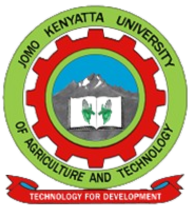Stakeholders converged for the third National Food Fortification Summit to review progress Kenya has made in combatting malnutrition through staple food fortification initiatives in the last decade.
Under the Kenya National Food Fortification Alliance, Government of Kenya has intensified efforts to rally stakeholders and development partners to effectively implement food fortification programmes for improved health.
Jomo Kenyatta University of Agriculture and Technology in partnership with the Ministry of Health and funding from the European Union, has made important contribution to Kenya’s fortification agenda, in the last five years.
Under ‘Strengthening the Kenya National Food Fortification Programme,’ JKUAT has established national food fortification reference laboratory which is equipped with modern analytical tools and has been critical in training and testing of food samples from the industry.
“JKUAT helped develop the first fortification training guidelines for all milers which has since been adopted for use countrywide. The efforts have enhanced fortification compliance among maize millers from 16% in 2018 to 45% currently,” said Prof. Daniel Sila, Principal College of Agriculture and Natural Resources.
Prof Sila added that compliance among wheat millers has improved from 18% to 85% in the last five years.

Delegates follow proceedings during the summit
Food fortification is the deliberate practice of adding vitamins and minerals to commonly consumed foods during processing to increase their nutritional value. It is a proven, safe and cost-effective strategy for improving diets as well as prevention and control of micronutrient deficiencies particularly among vulnerable populations like children and pregnant women.
It involves—adding micronutrients needed by our bodies, brains, to properly grow and develop and for immunity such as iron, zinc, vitamin A, and iodine into staple foods like milk, bread, cereals, oil and salt
In Kenya, fortification was made mandatory through an amendment of the Foods, Drugs and Chemical Substances Act of the Laws of Kenya, Cap 254, Notice No. 62 of June 2012. The regulation requires that all salts for human consumption, packaged maize flour, wheat flour, fats and oils to be fortified with specific vitamins and minerals.
Kenya is faced with the triple burden of malnutrition namely: undernutrition, overweight and obesity. This has come with heavy social and economic implications. The economic losses attributed to child malnutrition in Kenya is estimated at KSh. 374 billion, according to the Ministry of Health.
Every KSh.150 invested in combatting hidden hunger generates KSh. 4000 in economic returns from averted disease, improved earnings, and enhanced work productivity, according to the World Bank.
Top-performing industries in food fortification were acknowledged and rewarded for their exemplary contributions to public health during the summit. In the salt industry, Malindi Salt Works Ltd, Krystalline Salt Ltd, Kensalt Ltd were awarded. In the edible oils category, Bidco Africa Ltd, Kapa Oil Refineries Ltd, Pwani Oil Products Ltd were awarded.
Large scale maize millers awarded include Mombasa Maize Millers; Capwell Industries Ltd and UNGA Ltd. Among the Medium/Small Scale maize millers, Beada Millers Ltd; Mwanga Millers and LIZBRAND Multicare Ltd were awarded.
In the wheat industry, Grain Industries Ltd, UNGA Ltd and Pembe Flour Mills were awarded.

Representatives of large sclae millers who were awarded for the compliance with fortification regulations during the summit


Leave a Reply